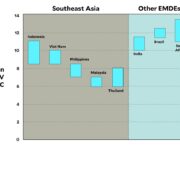Partnerships are the heart of strategic defense

On May 26, the Philippine Marine Corps and the United States Marine Corps opened the ninth iteration of the Kamandag Exercises, drills that aim to strengthen defense interoperability and promote regional peace and security in a free and open Indo-Pacific.
The Kamandag Exercises, which ran until June 6, featured scenario-driven drills including live-fire exercises, maritime strike operations, and counter-landing maneuvers—aimed at strengthening joint operational readiness and interoperability with the Philippines and allied forces.
Some 2,000 participants from both marine corps took part in the drills, with other countries like the Japan Ground Self-Defense Force, Republic of Korea Marine Corps, and United Kingdom Armed Forces also participating. Serving as observers were the Netherlands, Bahrain, Canada, New Zealand, among others.
These recent joint exercises demonstrate the Philippines’ effort to strengthen its defense capability while also fortifying its cooperation with other countries that, like it, are committed to peace, stability, and cooperation, with a view to maintaining the international rules-based order.
These are challenging times in the quest to maintain this order. Most recently, at the summit of the Association of Southeast Asian Nations (Asean) held in Kuala Lumpur, President Ferdinand Marcos Jr. appealed to our fellow Asean members to adopt a legally binding Code of Conduct in the South China Sea. The code, he said, is needed to prevent further escalation given the region’s volatility and potential to disrupt communities and supply chains.
Indeed, the Philippines is a key geopolitical actor in the Indo-Pacific region, thus the need to enhance its defense capabilities and expand its defense cooperation. The latter has also been evident in recent developments as the administration’s utmost priority.
—————-
Among the like-minded countries with which the Philippines has recently entered into agreements are Germany and New Zealand. Both countries support the development of the Philippines’ defense forces through training missions and joint military exercises.
On May 14, Philippine Defense Secretary Gilberto Teodoro and German Defense Minister Boris Pistorius signed the defense cooperation arrangement, paving the way for joint military activities between the two countries. The signing was held on the sidelines of the United Nations Peacekeeping Ministerial conference in Berlin.
Following the signing, both ministers convened for the 3rd Philippines-Germany Security and Defense Staff Talks to review and finalize proposed joint activities and initiatives to be implemented under the new arrangement.
During a forum we recently hosted together with Konrad-Adenauer-Stiftung Philippines, the consensus was that in the 70 years of diplomatic relationship between the Philippines and Germany, the partnership has entered into a new era, from diplomacy to invigorated, strategic ties.
And then, on April 30, the Philippines and New Zealand signed the Visiting Forces Agreement. The VFA enables joint military exercises and deeper defense cooperation between the two countries, underscoring both countries’ commitment to upholding international law and maritime security in the Indo-Pacific.
—————-
Events in the West Philippine Sea in recent years show that the Philippines faces escalating tensions in its maritime territory, with threats spanning multiple domains. We deal with them on our own, tailor fitting our military priorities and allocating resources toward strengthening our forces. On this note, the President, who ordered the courtesy resignation of his Cabinet members and other officials, rejected the resignation of Defense Secretary Gilberto Teodoro. This signals the continued confidence in the way the Defense Department is being steered in order to achieve our goals. This will also enable the continuity of initiatives begun by the current administration in pursuing security and territorial integrity under the ambit of international law.
But cooperation with other nations is equally crucial.
More than their help in modernizing our military, their steady presence and reliable support for our strategic efforts in upholding our maritime interests—particularly in the West Philippine Sea, and in the areas of cybersecurity, defense armament, and logistics—are priceless. We are thankful for these like-minded countries. These defense cooperation agreements come at a pivotal time.
Beyond our national interests, there is a broader objective: maintaining a stable and peaceful Indo-Pacific region. Our strategic partners share a commitment to Indo-Pacific stability, emphasizing maritime security through the protection of open sea lanes and freedom of navigation.
Threats notwithstanding, the Philippines and its partners will build on shared values of trust, peace, and mutual cooperation for a secure nation and a stable region.
—————-
Dindo Manhit is the founder and CEO of Stratbase Group.

















